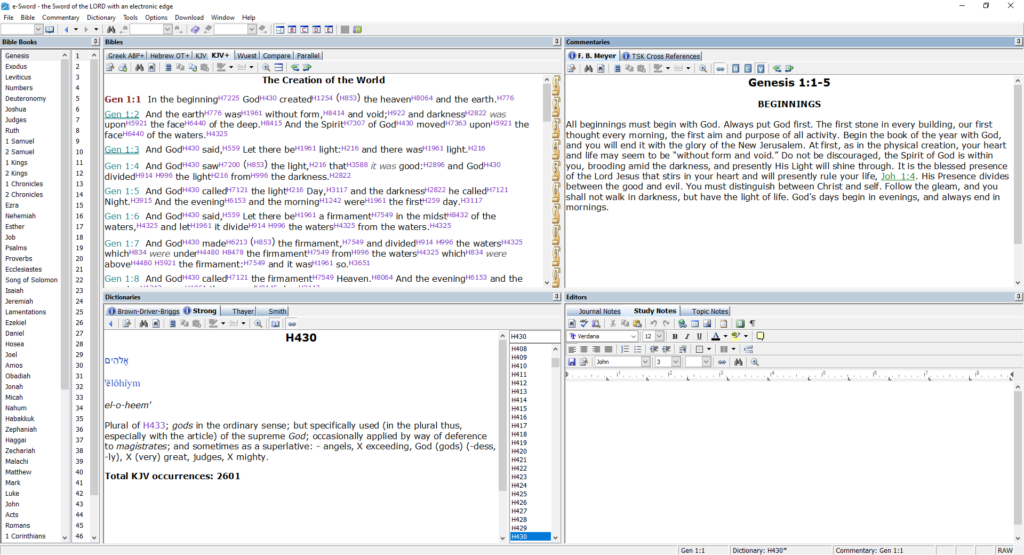We are very fortunate to live in the times that we do. We have at our fingertips a world of knowledge and reference materials. Some of the best tools we have for Bible study are sites and apps that link words in the Bible to the original words in Hebrew and Greek and a reference source called Strong’s Concordance. This is helpful from the very first verse of the Bible all the way through until the end, whether or not you know Hebrew and Greek.
My favorite of these tools is e-Sword. In addition to being linked throughout to Strong’s concordance, this app allows one to view various translations in parallel as well as see commentaries side by side with the text. I first learned about this method of study by watching video commentators use it. E-Sword is available for PC desktop and Apple platforms. Some of the resources available in e-Sword need to be purchased, but many of them are free. The app itself is free.
I also have MySword installed on my Android tablet that I take to church. This app used to be available on Google Play, but I can’t find it there now. You can also get it on Amazon. It does appear that there are other “Sword” products available on Google Play, if you would like to explore those.
Some online Bible apps also include the Strong’s Concordance and other resources. Blue Letter Bible is available as an online site as well as an app.
The Strong’s links do much to help clarify what was really being said in Bible, providing further insight into potential deeper meanings of passages in the original Hebrew and Greek. My suggestion is to compare translations closely and to also look up words, even if you think that you know already what they mean. (You may find some surprises!) Beyond this, it is helpful to know at least enough of these languages to recognize verb conjugations and other basic grammatical forms. A very nice tool for learning languages is Duolingo.
With any of these tools, it is important to pray and meditate about what you are reading and ask for clarification. Ultimately, it is more important to understand in the spirit rather than the mind.
“And I, brethren, when I came to you, came not with excellency of speech or of wisdom, declaring unto you the testimony of God. For I determined not to know any thing among you, save Jesus Christ, and him crucified. And I was with you in weakness, and in fear, and in much trembling. And my speech and my preaching was not with enticing words of man’s wisdom, but in demonstration of the Spirit and of power: That your faith should not stand in the wisdom of men, but in the power of God.”
1 Corinthians 2:1-5
